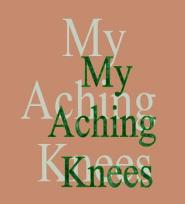And as I have written over the years, that there is very good antidotal reports on parents placing ADD/ADHD children on a quality daily multi-mineral, multi-vitamin and a Omega 3 supplement and seeing ADD/ADHD symptoms reduced. This is thought, in part, to be due to cellular energy transfer in the brain and this is supported by the article below that concludes that Omega 3's support cognitive function.
Fish Oil Boosts Brain Power
Fish oil is touted as a magical potion that boosts fertility, heart health, and weight loss and promotes a clear complexion, while lessening the effects of depression, ulcers, diabetes and many more conditions. But there’s another benefit to these glossy little capsules: They may prevent Alzheimer’s disease.
A new study of 819 people published in the journal Alzheimer’s & Dementia found that taking fish oil supplements on a daily basis is associated with a significant decrease in cognitive decline (as measured by the Alzheimer’s Disease Assessment Scale and the Mini Mental State Exam) and brain atrophy — important findings in light of statistics that show that one person per minute is diagnosed with Alzheimer’s disease.
“We found that fish oil use was associated with better performance on standard tests of memory and thinking abilities over time, compared to those who didn’t take supplements,” lead study author Lori Daiello, a research scientist at the Alzheimer’s Disease and Memory Disorders Center at Rhode Island Hospital, tells Yahoo Health. “They also experienced less brain shrinkage in areas of the brain important for healthy cognitive aging — the cerebral cortex and hippocampus, the portion of the brain responsible for forming and retaining memories.”
For this study, researchers analyzed information from neuropsychological tests and MRI brain imaging performed at regular intervals for up to four years during the Alzheimer’s disease Neuroimaging Initiative, a longitudinal study of brain aging and Alzheimer’s Disease. The population consisted of a group of older adults with varying degrees of cognitive capability: normal cognitive function, mild cognitive impairment, and Alzheimer’s disease. The benefit of fish oil appeared strongest in the group with normal cognitive functioning. “Retrospective studies cannot establish cause and effect, so we can’t make a global recommendation that everyone should start taking fish oil supplements. But the findings highlight the need for additional research on the effects of longterm fish oil use on brain health in later life,” says Daiello.
The main ingredient in fish oil is DHA, omega-3 fatty acids found in cold-water fatty fish such as salmon, swordfish, trout, yellowfin tuna, mackerel, and more. (Non fish-lovers can find it in eggs, milk, and algae-derived supplements). According to Daiello, there is no definitive evidence that eating fish daily is better than taking fish-oil supplements. But some people dislike the fishy breath that lingers after taking the supplements. “In that case, you could always store the capsules in the freezer, which seems to diminish the scent,” suggests Daiello. (Though the study did not address the dosage of daily fish oil to take, the World Health Organization recommends a daily EPA and DHA intake of 0.3 to 0.5 grams and a daily ALA intake of 0.8 to 1.1 grams.)
And while the effects of fish oil have been well-documented, they also carry a “buyer beware” element. One study, conducted by a testing company called LabDoor, found that what’s advertised on the label of many supplements may not live up to their promise of what’s advertised on the labels. When the company analyzed 30 top-selling brands, they found that six products exaggerated the amount of omega-3 on their labels by 30 percent. And at least a dozen products contained DHA levels that were 14 percent less than advertised. “Mislabeling is a big problem because the FDA considers fish oil supplements food, not drugs, so they aren’t regulated,” says Daiello. “So it’s tough to verify the purity of what you buy.”
To select the best supplement, talk to your doctor, who may be able to recommend a pill that’s right for your needs. Or join a subscription-based website such as Consumer Lab, which regularly tests vitamins and supplements.
MyAchingKnees comment: The above paragraph, concerning the "buyer beware" notice is highlights the problems with buying off the shelf or otherwise "food grade" products whose label claims as well as purity cannot be guaranteed. This is very important for fish oil supplements as they are thought to have a higher chance of toxins.


.jpg)
